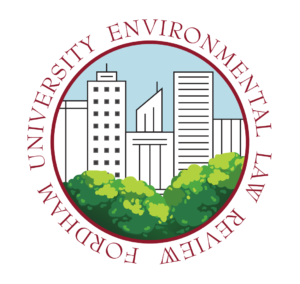The Cannabis Rollout and the Environmental Threat of Rolling Papers
Jacob Weiser (he/him)
Fordham Law, ELR Staffer ’24
A cannabis dispensary will soon open in the center of my predominantly orthodox Jewish community. Religious leaders generally oppose this “grand” opening, fearing that cannabis distribution and use will adversely affect the community’s health, safety, education, religious practices, and children. However, the religious leaders seem unaware of another adverse factor inherent in cannabis dispensaries; the deleterious environmental effects the cannabis trade brings to communities. Religious leaders’ lack of awareness is unsettling, but it is our legislatures’ failure to adequately consider the environmental impact the cannabis trade brings that is genuinely concerning. Specifically, our legislator’s inability to identify or pass regulations to curb the environmental effects of New York dispensaries’ distribution of inorganic rolling paper is of serious concern.
On March 31st, 2021, New York passed the Marihuana Regulation & Taxation Act (MRTA), the state’s first legislation legalizing adult-use cannabis. This legislation created the Office of Cannabis Management (OCM), governed by a Cannabis Control Board (Board), to regulate adult-use, medical, and hemp cannabis comprehensively. Under the MRTA, when the Board reviews applications for dispensary licenses, they must consider the applicant’s “ability to increase climate resiliency and minimize or eliminate adverse environmental impacts, including but not limited to water usage, energy usage, carbon emissions, waste, pollutants, harmful chemicals, and single-use plastics.” NY Cannabis § 64 (2022). Inexplicably, the MRTA fails to require the Board to weigh the adverse environmental impact of the rolling paper sold at dispensaries. Thus, the New York Legislature should amend the MRTA and its regulatory scheme to mandate the sale of environmentally friendly rolling papers in all New York dispensaries.
Why regulating rolling paper in New York dispensaries would benefit the environment:
1) The Roach Issue:
A roach is the short end of a joint or blunt packed full of weed that is too small to hold or smoke without burning the user’s fingers. People generally dispose of roaches on the ground, sidewalks, or public streets, which poses an environmental threat because: a) most rolling papers are not biodegradable. For example, the papers sold in New York dispensaries contain nonbiodegradable materials such as wood fiber, rice, and flax; b) some rolling papers are made from natural substances, such as hemp. Even though hemp is technically biodegradable, it requires a significant time to degrade, which leaves roaches visible to high-density foot traffic in congested urban environments like New York City.
2) Pesticide Contamination:
A 2020 analysis by Science of Cannabis Laboratories Inc. found that 16 percent of all rolling paper samples tested positive for pesticides, with blunt wraps and cellulose-based paper containing the highest level of pesticides. Moreover, a recent study by the California State Cannabis Bureau of Control found that greater than 11% of lawfully retailed cannabis contained pesticide levels significantly over the legal minimum.
Suggestions for New Regulation:
1) Amend the § 128.4 Retail Packaging Sustainability Program
MRTA 128.4 (a) requires a licensee to submit an environmental sustainability program for cannabis product packaging in their application. NY Cannabis § 128.4 (a). These programs may include “reuse strategies [for] collecting reusable cannabis packaging components to be sanitized and refilled or reused as cannabis packaging.” Id. Additionally, the MRTA should require licensees to submit an environmental sustainability program for the rolling papers they plan to sell, including:
- the types of rolling paper to be sold,
- a pesticide test with a specific focus on outside pre-packaged cannabis and blunts,
- strategies for promoting the sale of organic paper, and
- a percentage of rolling paper inventory more likely to burn thoroughly.
The environmental benefits of this report would vastly outweigh the minimal burden of preparing it.
2) Mandate Organic Rolling Paper
New York must amend the MRTA so that only organic rolling paper can be sold in New York dispensaries. Overseeing and regulating dispensaries under this proposed amendment may require substantial government resources, but the environmental benefits would likely outweigh the burden. First, as cannabis crop yields increase commensurate with rising usage, eliminating pesticides in rolling paper becomes more important because the distribution and use of rolling paper expose soil, water, turf, and vegetation to pesticide contamination. Alternatively, by requiring organic rolling paper usage, dispensaries can help reduce the extensive general use of toxic pesticides.
Finally, New York legislators should consider adopting California’s OCAL system, a statewide certification program regulated by the California Department of Food and Agriculture, as a basis for its regulation. OCALestablishes and enforces comparable-to-organic cannabis standards (Since cannabis is illegal federally, it is not eligible for the organic designation, so the “comparable to organic” label symbolizes the product’s compliance with the standards of the National Organic Program.). A simple and cost-effective solution for New York is to adopt the California model while shifting oversight responsibility to the New York Department of Food and Agriculture.
Ultimately, it is hard to predict or quantify the environmental impact the dispensary’s inception will have on my community. However, it is abundantly clear that the environment will be adversely affected if legislation is not passed regulating the types of rolling paper that can be sold in New York dispensaries.

